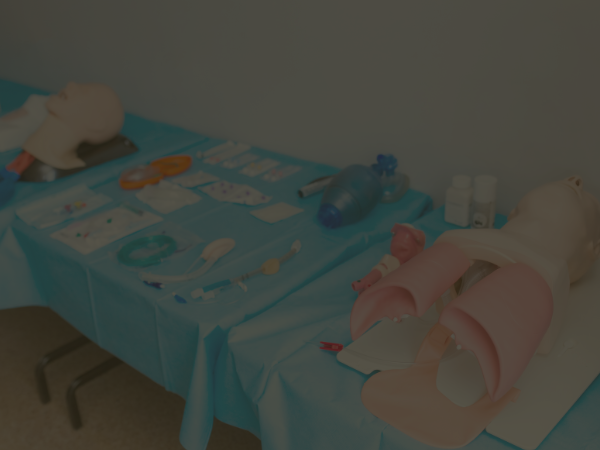DID YOU KNOW – Since the 2007 United States recession, the health care field has added 559,000 jobs since the beginning of the economic slump. The health care industry is flourishing as the baby boomers population grows and ages.
The rise in medical technology, increase of average age, expanse of insurance coverage with Obamacare, and a general increase in the need for more specific care have resulted in an increased demand for all health care careers, both new and old. Unlike many other industries, such as retail and restaurant, the health care sector continues to offer career paths that generate substantial compensation, plentiful benefits and a secure future. How exciting!
The latest Bureau of Labor Statistics 10-year projection report stated that from 2014 to 2024, the health care is expected to have the fastest employment growth rate and to add the most jobs of any other industry. According to the BLS Health Care Spotlight, both the number of workers and the percentage of the nations private-sector workforce employed in health care have increased.
Medical Technology Schools released a broad list of their top 50 health care careers for 2020 based on projected growth percentage and growth in the actual number of available jobs. They also factored salary into the picture, as well as flexibility, long-term responsibility, short-term return on investment, and time and educational sacrifices. If you’re considering a career in the health care industry, you’ve come to the right place! We’ve decided to take the top 10 on their list and break them down for you.
1. Physical Therapist
If you’re interested in fitness and a wellness-oriented lifestyle, PT may be for you! Physical therapists, or PTs, help injured or ill individuals manage and improve their pain and movement. They are a hugely important part of the management, prevention and recovery of patients with injuries and chronic conditions.
They typically work in clinics, hospitals, nursing homes, or at a private practice, and require a Doctor of Physical Therapy degree and proper licensure to practice.
Median Salary: $82,390
Unemployment Rate: 1.2%
Number of Jobs: 71,800
2. Dental Hygienist
If you’ve been to the dentist, you’ve probably gotten your teeth cleaned by a dental hygienist! Dental hygienists have several daily responsibilities, including cleaning teeth, screening patients for oral diseases, conducting X-rays and providing preventative dental care. They educate patients and families on improving oral health and maintaining healthy dental checkups.
Nearly all dental hygienists work in dentist offices, and becoming a dental hygienist requires an associate’s degree in dental hygiene, which typically take about three years to finish.
Median Salary: $71,520
Unemployment Rate: 3.1%
Number of Jobs: 37,400
3. Physician Assistant
If you want to provide high-quality medical care much like the clinical services a physician does, you may consider a career as a physician’s assistant. Also called PAs, assistant physicians examine, diagnose, and treat patients alongside physicians and health care professionals. They have a variety of daily responsibilities, which depend on the patient’s needs for the day.
The work environment varies as well, as they work in physician’s offices, hospitals and clinics. Education is lengthy, as physician’s assistants typically receive a master’s degree and require proper licensure.
Median Salary: $95,820
Unemployment Rate: 0.2%
Number of Jobs: 28,700
4. Nurse Practitioner
Nurse practitioners are a part of a group referred to as advanced practicing registered nurses (APRNs), providing primary and specialty care for patients. They also have several responsibilities depending on where they practice and their specialization.
Nurse practitioners work in physician’s offices, hospitals, clinics, schools and other health care settings. Education includes earning at least a master’s degree, be licensed in their state and pass the national certification exam (NCLEX).
Median Salary: $95,350
Unemployment Rate: 1.3%
Number of Jobs: 44,700
5. Physician
Always in demand, physicians do many things, such as examine patients, prescribe medications, perform diagnostic tests, take medical history and educate their patients on their conditions.
Physicians typically work in clinics or hospitals, and have demanding education requirements. Education includes at least four years of undergraduate schooling, four years of medical school, and 3-7 years of internships and residency programs.
Median Salary: $187,199
Unemployment Rate: 0.4%
Number of Jobs: 5,100
6. Registered Nurse
Also always in demand registered nurses, or RNs, have several responsibilities, which include managing patient care, educating patients about conditions and prevention, providing guidance, and emotional support to individuals and families.
Registered nurses work in a variety of settings, which include hospitals, health care services, clinics, physician’s offices, schools or in the military. To become a RN, one must receive a bachelor’s degree in nursing, associate’s degree in nursing or a diploma from an accredited nursing program.
Median Salary: $66,640
Unemployment Rate: 2.1%
Number of Jobs: 439,300
7. Occupational Therapist
Working in occupational therapy can be one of the most rewarding career paths one can take! Occupational therapists provide care for ill or disabled patients utilizing everyday therapeutic devices, helping their patients recover advance, and increase skills they need to live their lives comfortably daily.
Occupational therapists work in occupational therapy offices, hospitals, nursing homes and home health services. The educational path to become an occupational therapist includes completing a master’s degree in occupational therapy and proper state licensure.
Median Salary: $78,810
Unemployment Rate: 1.1%
Number of Jobs: 30,400
8. Home Health Aide
A flexible career path with excellent employment prospects, home health aids, much like occupational therapists, help individuals with disabilities, cognitive impairments and chronic illnesses. They typically work with older patients under the direction of other health care practitioners.
Home health aides, like the name implies, work in patients homes, group homes, hospice centers, and day service program clinics. To become a home health aide, individuals typically have a high school diploma, and many complete formal training and testing.
Median Salary: $95,820
Unemployment Rate: 0.2%
Number of Jobs: 28,700
9. Diagnostic Medical Sonographer
Love helping people with medical technology and imaging? Diagnostic medical sonographers operate special imaging equipment to create images and conduct tests that help physicians treat and assess medical conditions. Some diagnostic medical sonographers assist physicians and surgeons during surgical procedures.
These technologists work in hospitals, physician’s offices and medical laboratories. To become a diagnostic medical sonographer, post-secondary education, such as an associate’s degree or postsecondary certificate, is required. Many employers also require professional certification.
Median Salary: $67,530
Unemployment Rate: 1.9%
Number of Jobs: 16,000
10. Licensed Practical Nurse
If you want to work with a medical team and enjoy caring for others, this one may be for you! Licensed practical nurses (LPNs), also known as licensed vocational nurses (LVNs) provide basic nursing care under the management of RNs and doctors.
LPNs and LVNs work in several settings, including extended care facilities, private homes, physician’s offices, nursing homes and hospitals. LPNs must complete a state-approved educational program, which typically takes a year or so, and proper licensure.
Median Salary: $42,490
Unemployment Rate: 3.1%
Number of Jobs: 117,300
Median salary, unemployment rate, and number of jobs information was found on U.S News & World Report Best Jobs.
Check out the video:







Leave a Reply